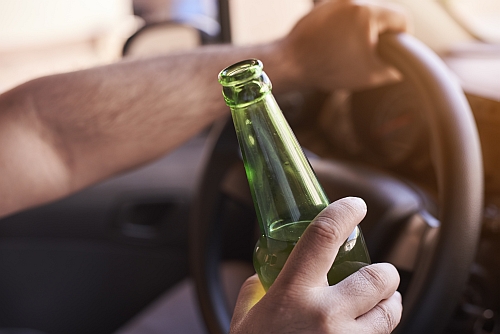- March 14, 2024
If you’ve been pulled over in South Carolina for drunk driving, you’re probably wondering how it will impact your license and driving privileges. Unfortunately, South Carolina takes drunk driving offenses very seriously, and even a first offense can lead to DUI license suspension. An Orangeburg DUI defense lawyer can help you fight these charges and, hopefully, avoid the suspension of your license altogether.
DUI License Suspension Periods in South Carolina
South Carolina’s DUI laws prohibit driving with a blood alcohol concentration (BAC) of 0.08 percent or higher. If you’re convicted of driving under the influence, the length of your license suspension depends on whether it’s your first offense, second offense, or third offense.
First Offense
For a first DUI offense with a BAC below 0.15 percent, your license will be suspended for six months. If your BAC is 0.15 percent or higher, the suspension increases to one year.
After the suspension period, you’ll need to pay a reinstatement fee of $100 and file proof of insurance to get your license back. You’ll also have to take a DUI treatment program.
Refusing a Breathalyzer Test
Refusing to take a breathalyzer test will result in the same six-month license suspension as a DUI conviction. The police officer will confiscate your license on the spot, and you’ll face additional penalties in court for refusing the test. It’s best to comply with the officer’s request.
Second Offense
A second DUI offense within five years means an 18-month license suspension. You’ll have to complete a longer DUI treatment program, pay higher reinstatement fees, and possibly install an ignition interlock device to get your license back.
Third Offense or Higher
For a third DUI offense, your license will be suspended for two years. You’ll have to meet several conditions to reinstate your license after two years, including completing an extensive DUI treatment program, paying sizable reinstatement fees, and installing an ignition interlock device.
Can I Get a Restricted License After a DUI?
Depending on the specifics of your DUI offense, you may be eligible for a restricted driver’s license that allows limited driving privileges.
To get a provisional license, you must pay a reinstatement fee, provide proof of enrollment in an alcohol education program, and maintain SR-22 insurance coverage. The provisional license is valid until the end of your suspension period. Make sure you understand all restrictions to avoid further penalties.
While regaining any driving privileges after a DUI may provide relief, the consequences of drunk driving are severe. The best way to avoid license suspension and legal penalties is not to drive if you’ve been drinking. Call a taxi, rideshare, or friend instead.
How to Get Your License Reinstated After Suspension
To get your license reinstated after a DUI suspension in South Carolina, you’ll need to pay a $100 reinstatement fee. This can be paid at any SCDMV branch office, either in person or by mail. The SCDMV accepts cash, checks, money orders, and most major credit/debit cards. Paying this fee is required before any other reinstatement steps can be taken.
South Carolina requires anyone whose license was suspended due to DUI to complete an Alcohol and Drug Safety Action Program (ADSAP). This involves attending and completing a state-certified treatment program. The ADSAP provider will require you to pay a fee, which typically ranges from $300 to $500. You must complete all required components of the program to become eligible for license reinstatement.
If your DUI resulted in a high blood alcohol concentration (BAC) or if it was not your first offense, the SCDMV may require you to install an ignition interlock device (IID) on your vehicle for a period of time after your suspension ends.
Consult with a DUI Attorney in Orangeburg, South Carolina
If you’re facing a DUI license suspension in South Carolina, contacting an experienced drunk driving attorney should be your first call. A DUI attorney in Orangeburg can review the details of your arrest and determine the best strategy for fighting the charges.
Don’t delay—call today at (803) 353-1969.


